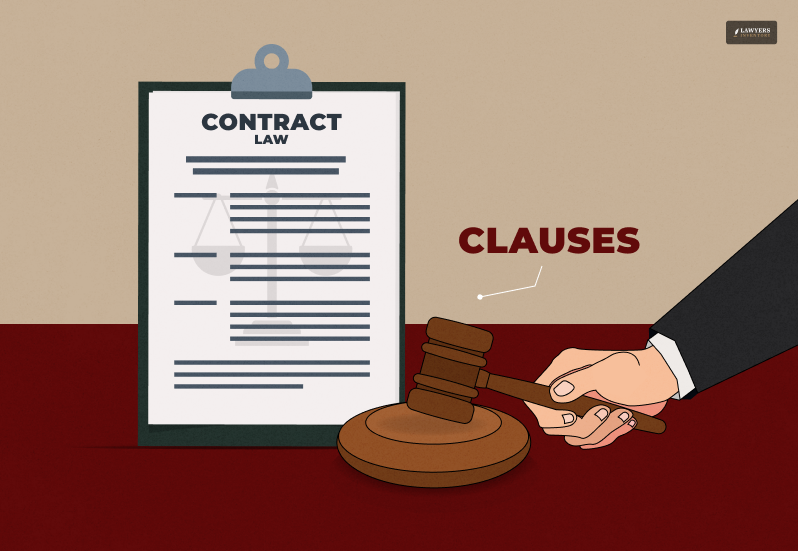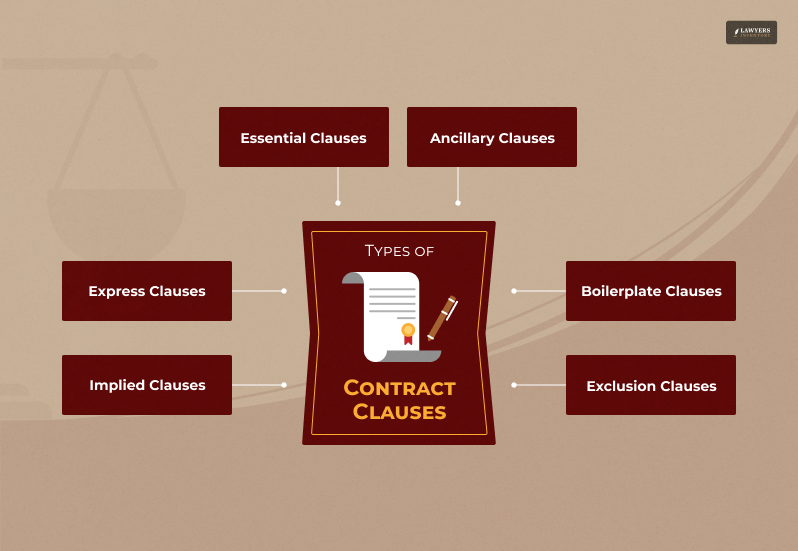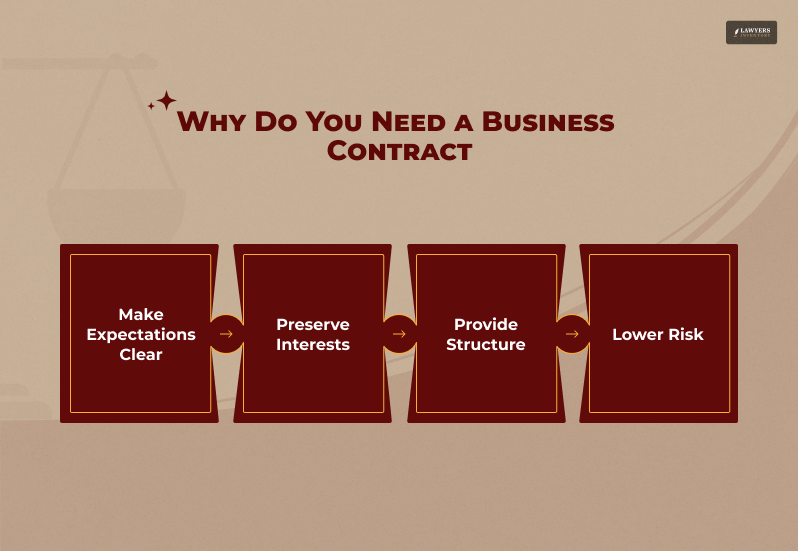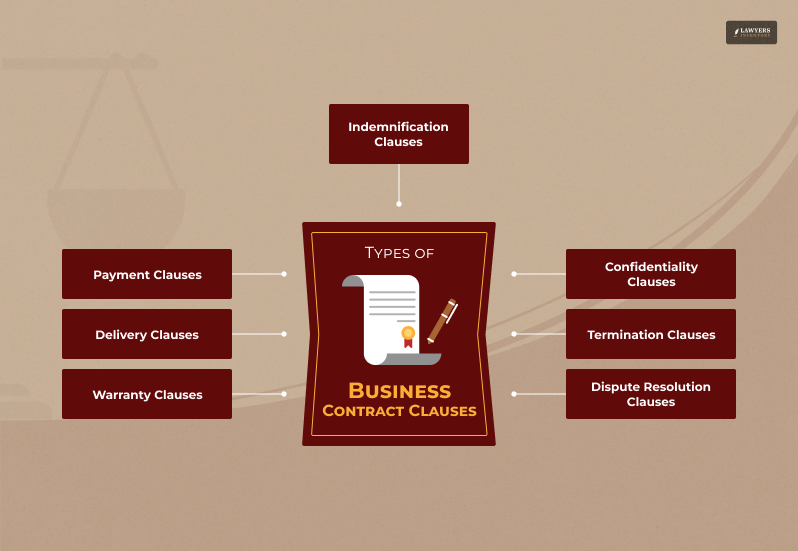
Contracts are the cornerstone of any profitable business venture or alliance. However, let’s be honest: contracts can be intimidating, particularly when reading the fine print.
I’ve compiled this comprehensive guide to the various contract law clauses. These contract law clauses are similar to the rules and regulations of a video game.
They prevent misunderstandings that can lead to a breach of contract and make expectations clear for all parties. What occurs, though, if someone disregards the rules?
Thus, it’s beneficial to understand contract provisions. In this blog, I’ll explain contract clauses so you can confidently approach any contract negotiation.
I’ll also talk about the most important clauses, such as indemnity, confidentiality, and termination, and how they apply to your business or partnership.
By the end of this guide, you’ll be a contract clause pro, ready to tackle any agreement that comes your way! So, keep reading this blog till the end to learn more…
What are Clauses in a Contract?
Firstly, let us talk about what clauses are.
A contract’s clauses are the individual guidelines or agreements that comprise the whole deal. They are precise declarations outlining the agreement’s terms, conditions, and expectations.
Consider clauses, for example, as discrete components that combine to form the contract. Every clause usually addresses a particular agreement aspect, like delivery schedules, payment terms, or confidentiality obligations.
Clauses may be expressed (specifically stated in the case of express contract law) or implied (as required by law or circumstance in the case of implied contract law). They can also be divided into various categories, like the following:
- Essential terms, such as the scope of work or payment terms, are vital to the objective of the contract.
- Ancillary clauses such as dispute resolution or termination procedures reinforce the main agreement.
- Standard, pre-written clauses known as “boilerplates” are found in many contracts, such as indemnity or confidentiality agreements.
By incorporating particular clauses, contracts can protect the interests of both parties, address potential problems, and make expectations clear. Clauses give the agreement a clear direction and help ensure everyone is on the same page.
Types of Contract Clauses

When it comes to contracts, various types of clauses serve different purposes. Think of them like tools in a toolbox, each designed to help build a solid agreement. Each type of clause is vital in building a solid contract that protects both parties’ interests.
The terms and conditions are stated explicitly in the express clauses, which come first. These specify the who, what, when, and where; they are similar to the contract’s blueprint. Express contract clauses can include the scope of work, delivery schedules, and payment terms.
The implied clauses are the second category. These resemble the unspoken guidelines that both parties take for granted. For example, you assume that a builder will use reasonable care and skill if you hire them to construct a house.
Thirdly, there are necessary provisions called essential clauses. These are necessary to make the contract work and are listed next. These, such as the payment terms or the scope of work, are essential to the agreement’s goal.
Ancillary clauses, on the other hand, are like the supporting actors. They help facilitate the main agreement, covering dispute resolution or termination procedures.
Boilerplate clauses are like the contract’s standard equipment. They’re pre-written clauses in many contracts, like confidentiality or indemnification agreements.
Exclusion clauses are like the contract’s protective gear. They limit or exclude liability for certain damages or losses.
Finally, there are entire agreement clauses. These state that the contract represents the entire agreement between the parties, superseding all prior negotiations. It’s like a clean slate, ensuring both parties are on the same page.
Business Contract and its Clauses

Business contracts are signature agreements between two or more parties that outline the terms and conditions of a business transaction.
They guide both parties in the partnership, setting expectations and making sure everyone is aware of their respective roles and responsibilities. The distinct elements that comprise a business contract are called clauses.
They also include particular clauses that outline the terms of the contract, such as payment terms, delivery dates, and warranties.
These clauses are necessary in contracts because they:
- Make expectations clear: By ensuring that all parties agree, clauses help avoid misunderstandings and conflicts.
- Preserve interests: By limiting one party from taking advantage of the other, clauses preserve the rights and interests of each party.
- Provide structure: By providing a defined framework, clauses help the contract be easier to understand and enforce.
- Lower risk: Clauses can assign risk, restrict liability, and offer recourse if something goes wrong.
To sum up, business contract clauses are crucial because they safeguard both parties’ interests, help avoid conflicts, and give the agreement a clear structure.
Types of Clauses in Business Contracts

In business contracts, various types of clauses serve different purposes. Each clause ensures the contract is straightforward and comprehensive and protects both parties’ interests.
Here are some of the main ones:
- Payment Clauses: These specify when and how payments are to be made. They outline the payment schedule, amount, and mode.
- Delivery Clauses: These specify the delivery conditions, including the dates, hours, and places. They make sure that everyone is aware of the time and location of the delivery of goods or services.
- Warranty Clauses: These ensure the performance or quality of the products or services. They guarantee that the good or service will adhere to predetermined guidelines.
- Confidentiality Clauses: They safeguard private information that is exchanged between parties. They keep both parties from sharing private information with outside parties.
- Termination Clauses: specify the circumstances in which the agreement may be terminated. Notice durations, termination costs, and other terms of exit are specified.
- Dispute Resolution Clauses: These specify the procedures for arbitrating and mediating disputes. They aid in averting pricey legal actions.
- Indemnification Clauses: Clauses of indemnity shield one party against losses or damages brought on by the conduct of the other.
Now let us take a closer look at them:
Payment Clause
Firstly, the payment clause is like the money talk in your contract. It outlines how much, when, and how payments will be made. Think of it like a payment plan specifying the amount, method (like bank transfer or check), and timing (like monthly or upfront).
Delivery Clauses
Secondly, we have delivery clauses. These clauses are like the delivery instructions in your contract. They specify when, where, and how goods or services will be delivered. They cover details like:
- Delivery dates and times
- Location of delivery
- Method of delivery (e.g., shipping or in-person)
- Responsibilities for transportation and storage
Think of it like a delivery label – it ensures both parties know when and where to expect the goods or services.
Warranty Clauses
Thirdly, there are warranties included. They provide a quality guarantee for goods or services and are essential to any contract.
They guarantee that goods and services meet specific standards, providing peace of mind that you’re getting value for your money.
These clauses usually address the following topics: performance standards, timeframes for warranties, repair or replacement obligations, and the caliber of the materials or workmanship.
You can hold the seller responsible for flaws or malfunctions and obtain repairs or replacements when necessary by putting warranty clauses in your contract. Knowing you are guarded against inferior products or services gives you peace of mind.
Confidentiality Clauses
Fourth, agreements with confidentiality clauses safeguard sensitive information. They guarantee that none of the parties to a contract divulge private information to outside parties.
These provisions safeguard customer information, business plans, and trade secrets. They outline the kinds of information that are private, who can see them, and how long.
This provision in your business contract will help you protect confidential company information and stop unwanted disclosure.
Termination Clauses
Termination clauses outline the conditions for ending a contract. They specify the reasons, notice periods, and procedures for terminating the agreement.
These clauses explain how to exit the contract, including:
- Reasons for termination (e.g., breach of contract, non-payment)
- Notice periods (e.g., 30 days written notice)
- Procedures for termination (e.g., formal letter, meeting)
An explicit termination clause helps avoid disputes and ensures a smooth end to the contract.
Dispute Resolution Clauses
A resolution strategy must be in place if disagreements occur in a business partnership. Dispute resolution clauses can help with that.
These provisions specify what should be done in a dispute, which helps avoid expensive and time-consuming legal actions.
A dispute resolution clause typically outlines the dispute resolution procedures, including negotiation, arbitration, and mediation. It might also specify the actions to take before reporting the problem, such as attempting to resolve it through dialogue.
It might also contain guidelines for settling conflicts, such as selecting an arbitrator or mediator.
By implementing a clear and explicit dispute resolution policy, businesses can handle disputes amicably and effectively while maintaining their reputations and relationships.
Indemnification Clauses
Finally, we have Indemnification clauses that are like a safety net in contracts. They protect one party from financial losses or damages caused by the other party’s actions.
Here’s how it works: one party agrees to compensate the other for any losses or damages resulting from their mistakes, negligence, or breaches of contract.
This clause allocates risk and provides financial protection, giving businesses peace of mind and helping them avoid costly surprises.
Wrapping It Up!
In conclusion, any business professional or entrepreneur must comprehend the various contract clauses.
Therefore, you can safeguard your interests, avoid disagreements, and guarantee a fruitful collaboration by identifying and thoughtfully drafting each clause.
Every clause, from payment and delivery terms to warranties and confidentiality agreements, is essential to constructing a solid contract.
Through careful comprehension and skillful negotiation of these clauses, you can steer clear of costly blunders and lay the groundwork for a prosperous business partnership.
Keep in mind that a well-written contract serves as a tool for establishing expectations, fostering success, and fostering trust, in addition to being a legal document.
I hope that this blog has been of help to you if you were searching about contract law clauses and their importance. If you have any other questions related to the same, please feel free to let me know in the comments below!
Read More:
- What Are the Elements of a Contract?
- An Exhaustive Guide on Sales Contract
- Tips To Secure Your Employment Rights With The Best Lawyer?











0 Reply
No comments yet.